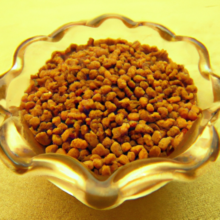Chamomile: The Go-To Herb For Better Sleep
If you’re finding it difficult to catch some quality shut-eye at night, chamomile might just be the answer you’ve been looking for. Considered the go-to herb for better sleep, chamomile has been used for centuries to promote relaxation and help fight insomnia. Known for its calming properties, this herb is a gentle and natural way to unwind after a long day and prepare your body and mind for a restful night’s sleep. So, why not give chamomile a try and experience the wonders it can do for your sleep routine?
What is Chamomile?
Chamomile, known scientifically as Matricaria chamomilla, is an herb that has been valued for its therapeutic properties for centuries. With its delicate white flowers and gentle aroma, chamomile has become one of the most popular natural remedies for promoting relaxation and aiding in sleep. Its soothing properties make it a go-to herb for those seeking a restful night’s sleep.
The Origins of Chamomile
Chamomile has a rich history that dates back to ancient times. The origins of chamomile can be traced to the Mediterranean region, where it was highly regarded by the ancient Egyptians, Greeks, and Romans for its medicinal properties. The name “chamomile” is derived from the Greek words “chamai” and “melon,” meaning “ground” and “apple” respectively, referring to its low-growing nature and the apple-like scent of its flowers.
Different Types of Chamomile
There are two main types of chamomile that are widely used for their health benefits: German chamomile (Matricaria chamomilla) and Roman chamomile (Chamaemelum nobile). German chamomile is known for its potent anti-inflammatory properties, while Roman chamomile is often used for its calming effects. Both types of chamomile can be consumed in various forms, including teas, supplements, and essential oils.
Key Properties of Chamomile
Chamomile owes its therapeutic effects to its unique combination of bioactive compounds, including flavonoids, terpenoids, and antioxidants. These compounds work synergistically to provide a wide range of health benefits, including reducing anxiety, promoting sleep, relieving digestive discomfort, and supporting overall well-being. Chamomile is also known for its gentle and soothing nature, making it suitable for people of all ages.
Historical Use of Chamomile
Chamomile in Ancient Civilizations
Chamomile has a long-standing history of use in ancient civilizations. The ancient Egyptians revered chamomile for its healing capabilities and used it in various remedies. They believed it had both physical and spiritual healing properties. The Greeks and Romans also embraced chamomile and considered it a sacred herb. It was commonly used to treat insomnia, digestive issues, anxiety, and skin conditions.
Traditional Herbal Medicine
Chamomile has remained a staple in traditional herbal medicine throughout history. In many cultures, chamomile tea has been used as a natural remedy for sleep difficulties, relaxation, and digestive complaints. It has been cherished for its ability to calm the mind and promote a sense of tranquility. Traditional healers also recognized chamomile’s anti-inflammatory and antimicrobial properties, using it topically to soothe skin irritations and promote wound healing.
Chamomile in Modern Times
In modern times, chamomile continues to be a popular herb for its numerous health benefits. Its soothing properties have been recognized by both traditional and conventional medicine practitioners. Chamomile is found in various forms, including teas, capsules, tinctures, and skincare products. Its versatility and accessibility have made it a beloved natural remedy for promoting better sleep and overall well-being.
The Science Behind Chamomile’s Sleep Benefits
How Chamomile Affects the Brain
The sleep-promoting effects of chamomile are attributed to its ability to interact with specific receptors in the brain. Chamomile contains bioactive compounds, such as apigenin and luteolin, which bind to GABA-A receptors in the brain. GABA-A receptors are responsible for inhibiting nerve activity, promoting relaxation, and reducing anxiety. By enhancing GABA-A receptor activity, chamomile helps calm the central nervous system, leading to a sense of tranquility and improved sleep quality.
Chamomile’s Impact on Sleep Quality
Numerous studies have investigated the effects of chamomile on sleep quality. A randomized controlled trial found that chamomile extract improved subjective sleep quality and reduced the time it took to fall asleep in adults with insomnia. Another study found that chamomile tea consumption was associated with a significantly higher sleep efficiency and reduced awakenings during the night. These findings suggest that chamomile can enhance sleep quality and promote a more restful night’s sleep.
Key Compounds in Chamomile and Their Effects
Chamomile contains several key compounds that contribute to its sleep-enhancing properties. Apigenin, a flavonoid abundant in chamomile, has been found to possess anxiolytic and sedative effects. It interacts with benzodiazepine receptors in the brain, which regulate sleep and relaxation. Other compounds, such as bisabolol and chamazulene, have anti-inflammatory and anti-anxiety properties, further contributing to the calming effects of chamomile. The synergistic actions of these compounds make chamomile a potent herb for promoting better sleep.
Methods of Consuming Chamomile for Better Sleep
Chamomile Tea: Preparation and Dosage
Chamomile tea is one of the most popular and accessible ways to consume chamomile for better sleep. To prepare chamomile tea, simply steep dried chamomile flowers in hot water for 5-10 minutes. The recommended dosage is typically 1-2 teaspoons of dried flowers per cup of water. For optimal results, it is advisable to drink chamomile tea 30 minutes to an hour before bedtime to allow the active compounds to take effect.
Chamomile Supplements: Forms and Recommended Intake
For those who prefer a more convenient option, chamomile supplements are available in various forms, including capsules, tinctures, and liquid extracts. These supplements provide a concentrated dose of chamomile’s bioactive compounds. The recommended intake may vary depending on the product and individual needs. It is important to follow the dosage instructions provided by the manufacturer and consult a healthcare professional if necessary.
Other Ways to Incorporate Chamomile into Your Bedtime Routine
In addition to tea and supplements, chamomile can be incorporated into your bedtime routine in other enjoyable ways. Taking a warm bath infused with chamomile essential oil or adding a few drops to your pillow can create a calming atmosphere conducive to sleep. You can also try using chamomile-scented candles or diffusers in your bedroom to create a soothing ambiance. Find what works best for you and make chamomile an essential part of your wind-down routine.
Chamomile in Combination with Other Sleep Aids
Chamomile and Lavender: A Powerful Duo
Combining chamomile with lavender can potentiate the sleep-enhancing effects of both herbs. Lavender is well-known for its calming aroma, which has been shown to promote relaxation and improve sleep quality. The combination of chamomile and lavender creates a synergistic effect, amplifying the overall sleep-promoting benefits. You can try using a chamomile and lavender pillow spray or placing a sachet filled with dried chamomile and lavender flowers under your pillow for an aromatic sleep experience.
Chamomile and Valerian Root: Synergistic Effects
Valerian root is another herbal remedy renowned for its sleep-inducing properties. When chamomile is combined with valerian root, their effects can be even more potent. Valerian root acts as a sedative, promoting relaxation and reducing sleep latency. Combining it with chamomile enhances its calming and sleep-enhancing effects. Look for herbal sleep blends or supplements that contain both chamomile and valerian root for a natural and effective way to improve sleep.
Other Herbal Combinations for Enhanced Sleep
Chamomile can also be combined with other herbs to create personalized sleep blends. Some popular herbal combinations for enhanced sleep include chamomile with passionflower, lemon balm, or hops. Passionflower has been shown to reduce anxiety and improve sleep quality, while lemon balm possesses calming properties. Hops, commonly known for their use in brewing beer, have sedative effects and can help promote relaxation. Experimenting with different herbal combinations can help you find the perfect blend for a good night’s sleep.
Potential Risks and Side Effects of Chamomile
Allergic Reactions and Precautions
While chamomile is generally safe for most individuals, allergic reactions can occur, particularly in individuals with known allergies to plants in the Asteraceae family, such as ragweed or marigolds. If you have known allergies or are uncertain, it is advisable to perform a patch test or consult with a healthcare professional before using chamomile. Additionally, if you experience any adverse reactions, such as skin irritation or respiratory issues, discontinue use and seek medical attention.
Possible Interactions with Medications
Chamomile may interact with certain medications, including blood thinners, sedatives, and anti-anxiety medications. It can potentiate the effects of these medications and increase the risk of side effects. If you are taking any medications, it is important to consult with your healthcare provider before using chamomile as a sleep aid to ensure there are no potential interactions.
Safety Concerns for Certain Populations
While chamomile is generally safe for most individuals, specific populations, such as pregnant women and young children, should exercise caution. Pregnant women should consult with their healthcare provider before using chamomile as it may have uterine-stimulating effects. Chamomile tea should also be administered with care to young children to prevent potential allergic reactions or other adverse effects. It is always best to seek guidance from a healthcare professional when considering the use of chamomile in these populations.
Research and Clinical Studies on Chamomile and Sleep
Overview of Relevant Studies
Numerous research studies have explored the effects of chamomile on sleep and relaxation. These studies include randomized controlled trials, observational studies, and reviews, collectively providing a solid foundation for understanding chamomile’s sleep benefits. They have examined various aspects, such as sleep latency, sleep quality, and overall sleep improvement, shedding light on the effectiveness of chamomile as a natural sleep aid.
Evidence Supporting Chamomile’s Sleep Benefits
The available evidence overwhelmingly supports the effectiveness of chamomile in promoting better sleep. A randomized controlled trial published in the Journal of Clinical Psychopharmacology found that chamomile extract significantly improved sleep quality and reduced the time it took for participants to fall asleep. Another study published in the journal Phytomedicine reported that chamomile tea consumption led to improved subjective sleep quality and increased sleep efficiency. These findings, along with many others, highlight chamomile’s potential as a natural sleep-promoting remedy.
Limitations and Future Research Directions
Though the existing research is promising, it is important to acknowledge the limitations of some studies. Many studies have relied on self-reported measures, which may introduce bias. Additionally, the optimal dosage and duration of chamomile use for sleep benefits have not been fully established. Future research should focus on standardized dosing regimens, objective sleep measures, and long-term effects of chamomile for better sleep. Further exploration of chamomile’s mechanisms of action and potential synergistic effects with other herbs is also warranted.
Tips for Maximizing the Sleep-Promoting Effects of Chamomile
Choosing High-Quality Chamomile Products
When selecting chamomile products, it is crucial to choose high-quality sources to ensure maximum effectiveness. Look for products that use organically grown chamomile flowers to avoid exposure to pesticides and contaminants. It is also beneficial to choose products that undergo rigorous testing for quality and purity. Reading customer reviews and seeking recommendations from trusted sources can help you identify reputable brands that prioritize quality.
Optimal Timing of Chamomile Consumption
Timing is key when it comes to maximizing the sleep-promoting effects of chamomile. To experience the full benefits, it is recommended to consume chamomile 30 minutes to an hour before bedtime. This allows sufficient time for the active compounds to be absorbed and exert their relaxing effects. Establishing a consistent bedtime routine that incorporates chamomile can further enhance its effectiveness in promoting better sleep.
Creating a Relaxing Chamomile-Infused Bedtime Routine
Incorporating chamomile into a relaxing bedtime routine can further enhance its sleep-promoting effects. Create a peaceful environment by dimming the lights, playing calming music, or practicing relaxation techniques such as deep breathing or meditation. Sipping a warm cup of chamomile tea while unwinding can signal to your mind and body that it is time to relax and prepare for sleep. By combining chamomile with a soothing bedtime routine, you can optimize its sleep-enhancing benefits.
Chamomile for Sleep: Personal Experiences and Testimonials
Anecdotal Evidence of Chamomile’s Sleep-Enhancing Effects
Countless individuals have reported positive experiences with chamomile for sleep improvement. Many people attest to chamomile’s ability to calm their minds, reduce anxiety, and promote a sense of relaxation. Individuals struggling with sleep difficulties have often found relief through incorporating chamomile into their nightly routine. While personal experiences and anecdotes cannot replace scientific evidence, they provide compelling insights into the potential benefits of chamomile for sleep.
Individual Accounts and Success Stories
Individual success stories further highlight the efficacy of chamomile as a sleep aid. People have shared how incorporating chamomile tea or supplements into their routine has positively transformed their sleep quality. Improved sleep duration, reduced sleep disturbances, and waking up feeling refreshed are common themes in these accounts. These personal stories serve as a source of inspiration for those seeking natural remedies for better sleep.
Real-Life Experiences Shared by Users
Numerous users have openly shared their experiences with chamomile on online forums and social media platforms. Some have found chamomile helpful in managing sleep disorders such as insomnia or sleep anxiety, while others have experienced relief from occasional sleep difficulties. Users have also discussed the different forms of chamomile they have tried, such as teas, capsules, and essential oils, and how they have incorporated it into their daily routines. These real-life experiences provide a valuable perspective on the practical use of chamomile for promoting better sleep.
Conclusion
Chamomile truly is the go-to herb for better sleep. With its rich history of use in ancient civilizations and its proven sleep-enhancing effects in modern times, chamomile has established its reputation as a natural remedy for promoting relaxation and improving sleep quality. From its calming effects on the brain to its unique bioactive compounds, chamomile offers a gentle and effective solution for those seeking a restful night’s sleep.
Whether enjoyed as a warm cup of tea, as part of a relaxing bedtime routine, or combined with other sleep aids, chamomile provides a versatile and accessible option for enhancing sleep. However, it is important to consider potential risks, such as allergies and interactions with medications, and follow recommended dosages and precautions.
With the support of scientific research, personal experiences, and the wisdom of ancient traditions, chamomile stands as a beacon of hope for those longing for a peaceful slumber. So why not give chamomile a try? Embrace its soothing properties, create a tranquil bedtime routine, and experience the joys of a restorative night’s sleep. Sweet dreams await!




